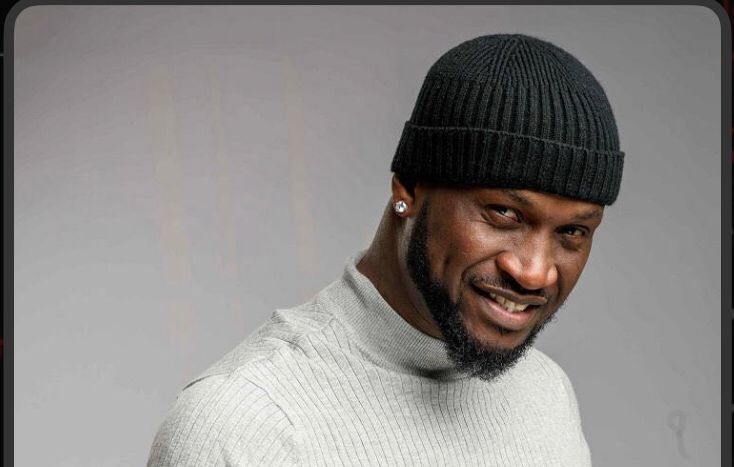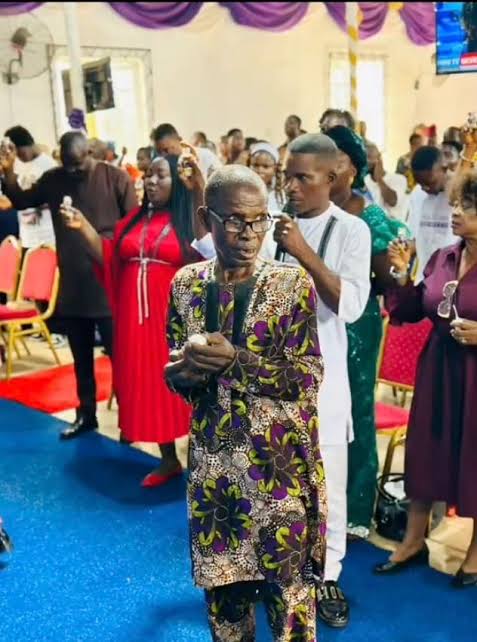The Nigerian entertainment industry has been thrust into the spotlight with a high-profile legal battle that has both fans and industry insiders reeling. On May 16, 2025, the Economic and Financial Crimes Commission (EFCC) brought forward a bombshell case at the Lagos State High Court in Ikeja, presenting Peter Okoye—famously known as Mr P of the iconic P-Square duo—as its first prosecution witness against his elder brother and former manager, Jude Okoye. The charges? A staggering four-count indictment alleging the theft of $1 million and £34,537 in music royalties, with Jude Okoye and his company, Northside Music Ltd., at the center of the controversy. This case not only exposes deep-seated financial disputes within one of Africa’s most celebrated music groups but also raises questions about trust, family ties, and the management of intellectual property in the Nigerian music industry.
The Background: P-Square’s Rise and Turbulent Split
To understand the gravity of this case, we need to rewind to the early 2000s when P-Square, the dynamic duo of twin brothers Peter and Paul Okoye, burst onto the African music scene. With hits like Bizzy Body, Personally, and Chop My Money, P-Square became a household name, not just in Nigeria but across the continent and beyond. Their infectious Afrobeat rhythms, synchronized dance moves, and relatable lyrics earned them a massive following and numerous accolades, including MTV Africa Music Awards and BET Awards nominations.
Behind the scenes, their elder brother, Jude Okoye, played a pivotal role as the group’s manager and the CEO of Northside Entertainment, which later transitioned into Northside Music Ltd. Jude was instrumental in steering P-Square to global success, negotiating deals, and managing their music catalog. However, tensions began to surface in 2016, culminating in a highly publicized split in 2017. The brothers cited creative differences and unequal contributions, but whispers of financial mismanagement lingered.
In 2021, Peter and Paul reconciled, reuniting as P-Square to the delight of fans. Notably, they resumed their music career without Jude as their manager, a decision that now appears to have been a precursor to the current legal drama. The EFCC case alleges that even after the 2017 split, Jude continued to control and divert royalties from P-Square’s extensive music catalog, leading to the financial discrepancies that sparked this investigation.
The EFCC’s case against Jude Okoye and Northside Music Ltd. is built on four counts of theft and fraud, centered on the alleged misappropriation of $1 million and £34,537 in royalties earned from P-Square’s music. According to court proceedings, Peter Okoye, now performing as Mr P, filed a petition with the EFCC on January 22, 2024, after uncovering what he described as “mind-boggling” financial irregularities. His testimony on May 16, 2025, painted a picture of betrayal, alleging that Jude, as the former manager, had systematically siphoned off funds meant for the group.
The EFCC’s investigation revealed a complex web of financial maneuvers. Northside Music Ltd., the company responsible for collecting P-Square’s royalties, was found to be 80% owned by Jude’s wife, Ifeoma Okoye, with Jude holding the remaining 20%. This ownership structure raised red flags, as it suggested that the company was being used as a vehicle to divert funds away from the Okoye twins. Further damning evidence came in the form of over 47 bank accounts linked to Jude, through which royalties were allegedly funneled. These accounts, according to the EFCC, were used to obscure the trail of funds, making it difficult for Peter and Paul to track their rightful earnings.
The stolen royalties reportedly stem from P-Square’s extensive catalog, which includes albums like Get Squared (2005), Game Over (2007), and Double Trouble (2014), as well as global hits that continue to generate significant streaming revenue. The $1 million and £34,537 cited in the charges represent a fraction of the total earnings allegedly misappropriated, hinting at a potentially larger financial scandal.
Peter Okoye’s appearance as the EFCC’s first witness was a pivotal moment in the trial. Taking the stand, he recounted how he stumbled upon the financial discrepancies that led to his petition. According to Peter, the realization came during a review of royalty payments post-reunion, when he noticed significant shortfalls in the funds remitted to him and Paul. His decision to approach the EFCC was not taken lightly, given the familial ties involved. “This is not just about money; it’s about trust,” Peter reportedly told the court, emphasizing the emotional toll of confronting his elder brother.
Peter’s testimony also shed light on the operational dynamics of Northside Music Ltd. He alleged that Jude had maintained control over the company’s dealings even after stepping down as P-Square’s manager, effectively locking the twins out of their own earnings. The revelation that Ifeoma Okoye held an 80% stake in the company added a layer of complexity, suggesting that the alleged fraud extended beyond Jude alone.
The courtroom drama was palpable, with Peter’s testimony setting the stage for what promises to be a contentious legal battle. His willingness to testify against his brother underscores the depth of the rift within the Okoye family, a fracture that may prove irreparable.
The EFCC, known for its aggressive pursuit of financial crimes, has positioned this case as a landmark effort to address fraud in Nigeria’s entertainment industry. The agency’s investigation, detailed during the May 16 hearing, paints a picture of calculated deception. By tracing the flow of royalties through Jude’s network of 47 bank accounts, the EFCC alleges that he orchestrated a scheme to divert funds for personal gain.
The involvement of Northside Music Ltd. as a co-defendant raises broader questions about corporate governance in the music industry. How could a company tasked with managing artists’ earnings operate with such opacity? The EFCC’s findings suggest that Northside Music Ltd. was structured to prioritize the interests of Jude and his wife over those of P-Square, a setup that could have legal implications for similar management companies in Nigeria.
The trial is still in its early stages, with the EFCC expected to call additional witnesses and present forensic financial evidence. The agency’s track record in high-profile cases, such as those involving corrupt politicians and business moguls, lends weight to its allegations. However, Jude Okoye’s defense team is likely to mount a vigorous counterargument, potentially challenging the validity of the evidence or the motives behind Peter’s petition.
The Broader Implications: Trust and Transparency in the Music Industry
The P-Square fraud case is more than a family feud; it’s a wake-up call for Nigeria’s booming music industry. With artists like Burna Boy, Wizkid, and Davido elevating Afrobeats to global prominence, the financial stakes have never been higher. Yet, the industry remains plagued by issues of mismanagement, opaque contracts, and disputes over intellectual property.
This case highlights the vulnerability of artists, even those as successful as P-Square, to financial exploitation. The alleged diversion of royalties underscores the need for greater transparency in how music earnings are collected, managed, and distributed. It also raises questions about the role of family members in professional management, a common practice in Nigeria that can blur lines of accountability.
For fans, the case is a heartbreaking chapter in P-Square’s storied career. The group’s music, often centered on themes of unity and resilience, now stands in stark contrast to the public unraveling of the Okoye family. Social media platforms, particularly X, have been abuzz with reactions, with hashtags like #PSquareFraud and #OkoyeBrothers trending in Nigeria. Some fans express support for Peter’s pursuit of justice, while others lament the damage to P-Square’s legacy.
What’s Next: The Road to May 23, 2025
The trial has been adjourned until May 23, 2025, giving both sides time to prepare for what promises to be a protracted legal battle. The EFCC is expected to call additional witnesses, possibly including Paul Okoye (Rudeboy), who has remained relatively silent on the matter. Financial experts and representatives from royalty collection agencies may also testify to clarify the flow of funds and the extent of the alleged theft.
For Jude Okoye, the stakes are high. A conviction could result in significant penalties, including imprisonment and hefty fines, not to mention irreparable damage to his reputation. His defense team will likely argue that the royalties were managed in accordance with agreements made during P-Square’s active years, or that Peter’s petition is motivated by personal grievances rather than evidence of wrongdoing.
The EFCC’s case against Jude Okoye and Northside Music Ltd. is a gripping saga that blends family drama, financial intrigue, and the complexities of Nigeria’s music industry. At its core, it’s a story about trust—or the lack thereof—and the consequences of betrayal in both personal and professional spheres. As the trial unfolds, it will undoubtedly spark broader conversations about how artists can protect their earnings and navigate the often murky waters of music management.
For now, the world watches as Peter Okoye stands firm in his quest for justice, while Jude Okoye faces allegations that could redefine his legacy. The adjournment to May 23, 2025, ensures that this story is far from over, and we’ll be here to bring you every update as it unfolds. Stay tuned to [Your Blog Name] for the latest on this explosive case and more from the world of entertainment.
What are your thoughts on the P-Square fraud case? Share your views in the comments below, and don’t forget to subscribe for updates on this and other trending stories!
Join our Whatsapp channel to stay updated always!



oyUQhBT mOngEQ lRTWLZ